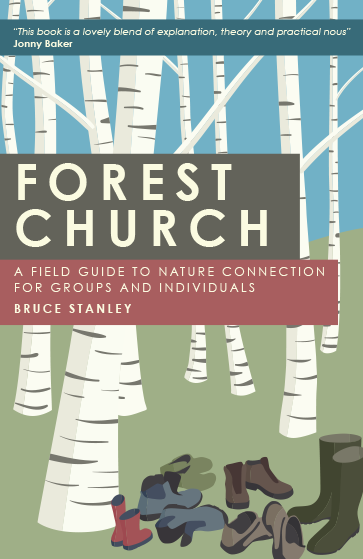Official blog of Ethos Environment, the environment/creation care think tank for Ethos - www.ethos.org.au
Friday, April 17, 2015
Inside out worship with Forest Church
I've started to read the US edition of this book, contemplating how I might start a Forest Church locally. One of the things that Bruce Stanley notes in chapter 1 is how we've shut up worship inside. Nature is associated with thin places, places where we meet the transcendent. These can also be called liminal spaces.
Of course, this is a book on experiencing the divine in nature, but straight away some might wonder about special revelation and how this can happen anywhere. While I fully support the idea of the reenchantment of nature (well of creation), the first few pages risk slipping into primitivism.
Perhaps gathering is more efficient than agriculture (I can't verify this), but gathering won't support anything like our global population - so is the account an historical account of agriculture or a thinly veiled critique? Likewise, it's unhelpful to picture indigenous North Americans or Australians purely as gatherers, presumably to set this up as the ideal, embedded in nature, simply because it isn't true. Get your facts straight by trying to see beyond your ideology; helpful corrective or not.
Gathering might in general be more robust to climate shocks, but it is natural change that forced or helped humans into agriculture. We may have moved through a period of poor nutrition in that shift - but it will be all the poorer if we went back. What I'm saying is that there is a difference between societal progress and spiritual progress. If a return to our place in nature is what is needed spiritually as well as for our physical survival, it can't, won't and should be the same as making an entirely physical return, unless we all want to be entirely open to the elements and predators. There is safety behind doors that is entirely desirable.
It might be true too that a view of God changes from a gather's milieu to a farmer's one. But that doesn't mean viewing nature purely as enemy, as much as our crops etc need protecting from it. The Israelites saw this in two ways. Firstly, the valuing of wilderness as special to God (Psalm 104). Secondly, the Sabbath rest for land (agricultural) and the allowing of wild animals to benefit from that (wildnerness).
What I'm saying is that making sacred spaces and finding them in nature are not opposed. It's just that the later is profoundly neglected in many Christian circles. Genesis 1 tells us all space is sacred. Working that out in different contexts will form part of working out what Forest Church will mean here in Melbourne.
Subscribe to:
Post Comments (Atom)

No comments:
Post a Comment